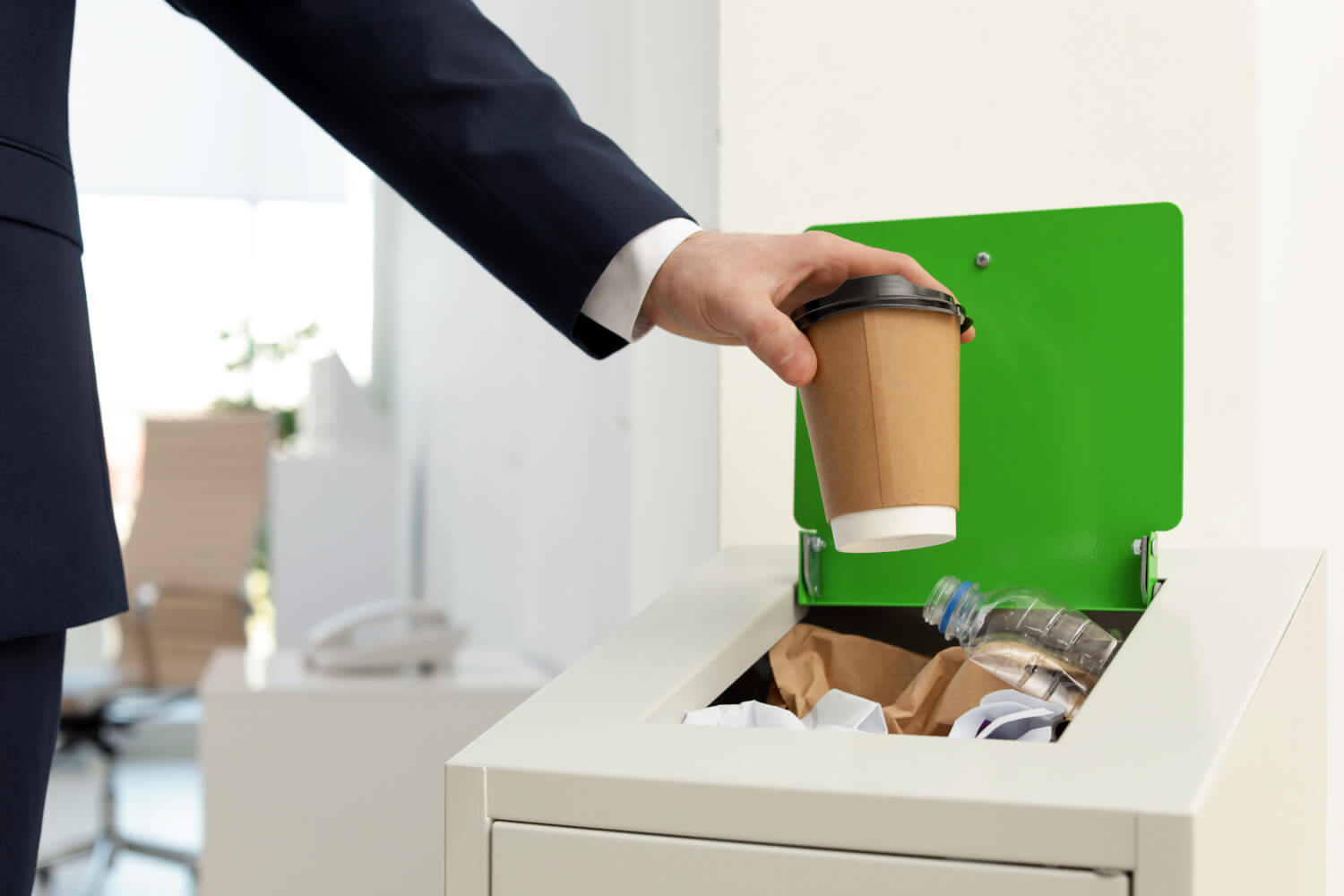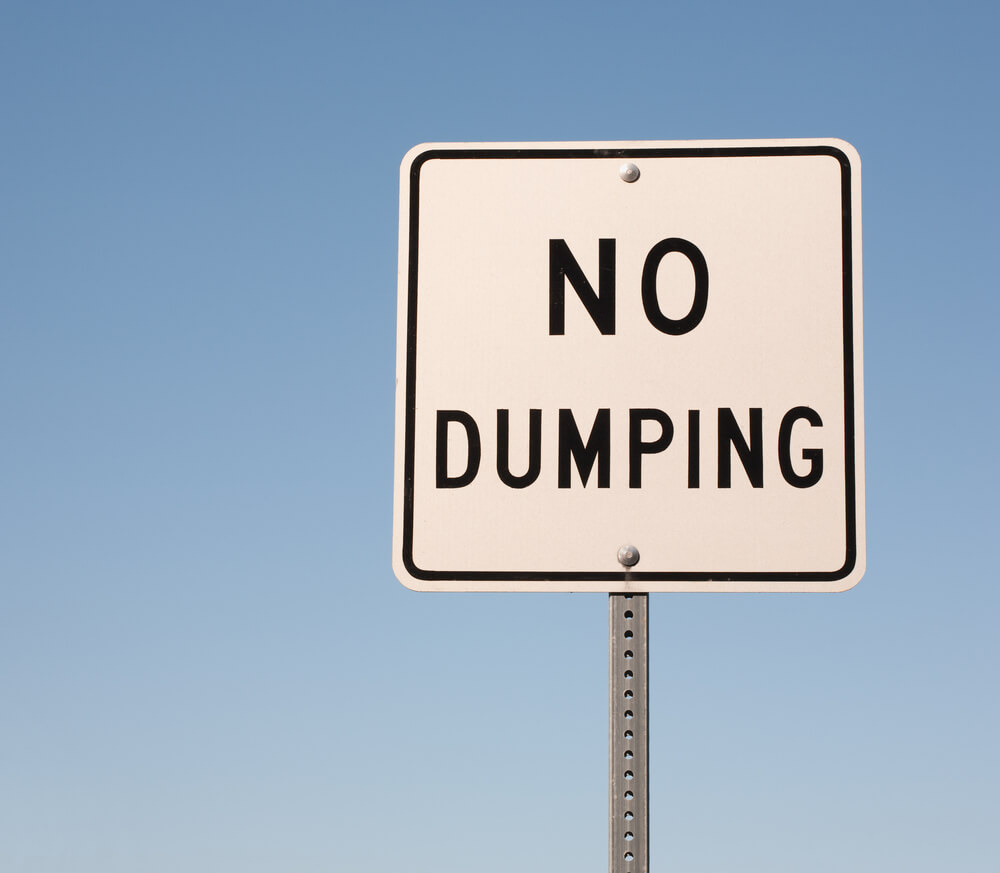All businesses generate waste. Depending on the industry and size of the company, the waste produced can be substantial.
Disposing of commercial waste in an efficient and safe manner is important for the company, its employees, and the public. Efficient waste diversion strategies promote sustainability and help reduce commercial waste, which can even save the company money.
Ready to make some waste disposal changes at your business? Read on to learn about our top commercial resource management and sustainability strategies.
What is Commercial Waste?
Commercial waste encompasses all solid waste generated by a company while doing business. This includes waste produced at office buildings, restaurants, supermarkets and shopping centers. Examples of commercial waste include:
- paper
- cardboard
- food scraps
- bottles and cans
- packaging materials
- boxes
- food wrappers
- e-waste
All businesses are required to properly dispose of commercial waste through a waste processing company. Sustainability tip: Setting up proper disposal stations throughout your workplace and creating proper signage on what waste items go where, serves as a great initiative for your company’s green team to conduct.
Once you have this information, you can make informed decisions about waste reduction strategies.
Why Managing Commercial Waste Matters
Properly disposing of waste at an office or commercial building is very important for achieving the company’s overall waste diversion goals and creating a more sustainable environment.
Understanding Your Needs
Knowing what type of dumpster you need is an important first step in a company’s waste processing plan. Since most companies generate more trash than what fits into standard garbage cans, it’s important to have the correct type and size of commercial dumpster. Many waste processing companies offer a variety of commercial dumpsters that fit the needs of certain companies.
For example, TDS offers Front-Load Dumpsters that range in size and come in flat-tops or slant-tops, with different types of lids including metal or plastic. These dumpsters can be delivered to commercial alleyways, driveways or parking lots. You also may need a Roll-Off Dumpster instead depending on the type of project you’re working on.
Once you understand what your company needs for proper waste disposal, you will be ready to create and implement an achievable sustainability and waste processing plan.
Waste Reduction Strategies for Your Company
There are several strategies a company can consider to reduce commercial waste.
Assign a “Green Team” to Involve Your Employees
Effectively reducing waste requires participation by everyone at your company. Having employees involved will help ensure that everyone contributes to the solution.
Make your waste reduction initiatives official by forming an employee “green team.” Encourage your employees to work together to devise short- and long-term waste reduction goals. Your “green team” can help implement action items and promote correct waste disposal throughout your entire company. Get the whole company involved through in-office trainings or other activities that help inform your employees about proper waste disposal.
Analyze Your Current Waste Disposal Practices
Identifying how to reduce commercial waste first requires you to understand how much and what types of waste your company generates. To get started, track and record the amount of waste generated over a month-long period at your business. While doing this, take a good look at what your company is throwing away.
Once you’ve got a good amount of data on your company’s waste habits, you can start focusing on waste reduction. Look at your waste production records and pinpoint the worst offenders. This could be any item from packaging materials and printer paper, to coffee cups and food scraps.
Have your “green team” put their heads together to come up with solutions for reducing or repurposing waste. For instance, paper-waste is one of the most common types of commercial waste, but you can reduce this type of waste by purchasing supplies with limited packaging or going paperless.
Purchase Reusable Items
Reusing items as many times as possible before tossing them helps businesses reduce commercial waste.
Does your business currently use any disposable supplies? If so, have your “green team” identify such items and determine if suitable reusable options are available.
You can also supply employees with reusable items such as water bottles and bags to reduce unnecessary waste and encourage landfill diversion tactics.
Encourage Recycling and Composting
Even if an item isn’t reusable by your company in its current form, it may still be possible for a recycling facility to break it down and use it to create new products.
Promote recycling by ensuring that your recycling system is easily accessible to all employees and customers, and is clearly understandable. Label all waste receptacles with information regarding what’s recyclable and what isn’t.
Organic waste, such as food scraps or agricultural waste, can also be recycled in its own way. Composting allows for the breakdown of organic material into a reusable form. The compost you create can be reused by you or transported to a composting facility and potentially used in your community.
Donate Unused Resources to Local Programs
Some commercial waste is still perfectly useful when discarded. You may not have the room or use for these items at your business, but that doesn’t mean everything has to go straight into the bin. Consider donation as a potential waste diversion strategy if your company routinely produces excess goods.
Work Directly with a Waste Disposal Partner
Working directly with a waste disposal company like TDS will help your company come up with a plan for diverting the exact types of items you’re disposing of, specific to your company. Whether you’re a contractor trying to place construction materials in the appropriate dumpster and need builder solutions, or a gardening company that is looking for landscape solutions, the right waste disposal company for you, will help you in all of your sustainability goals and efforts.
If your company generates a large amount of food waste and especially if you’re in the restaurant industry, consider working with a waste disposal company that offers Restaurant Waste Solutions. Working with a disposal company will help your business dispose and divert waste in a sustainable manner, all while improving the financial bottom line and enhancing the appearance and cleanliness of kitchen and service areas. Companies like TDS will help your team build custom, cost-efficient solutions that reduce disposal costs, minimize reliance on landfilling and comply with local regulations.
Set Goals and Incentivize Employees
One of the best ways to ensure that your company meets its goals in reducing commercial waste is to set measurable goals. Once you do so, have your “green team” encourage other employees to help meet those goals. A great way to incentivize your employees can be done through contests. Award prizes to those employees who help your company reduce commercial waste and improve recycling.
Move Forward on Commercial Resource Management with TDS
If every company works together to reduce waste through effective commercial resource management, waste reduction is possible. These waste reduction tips and strategies will help you make a difference in your community and industry.
For commercial waste processing and collection solutions, contact Texas Disposal Systems.



